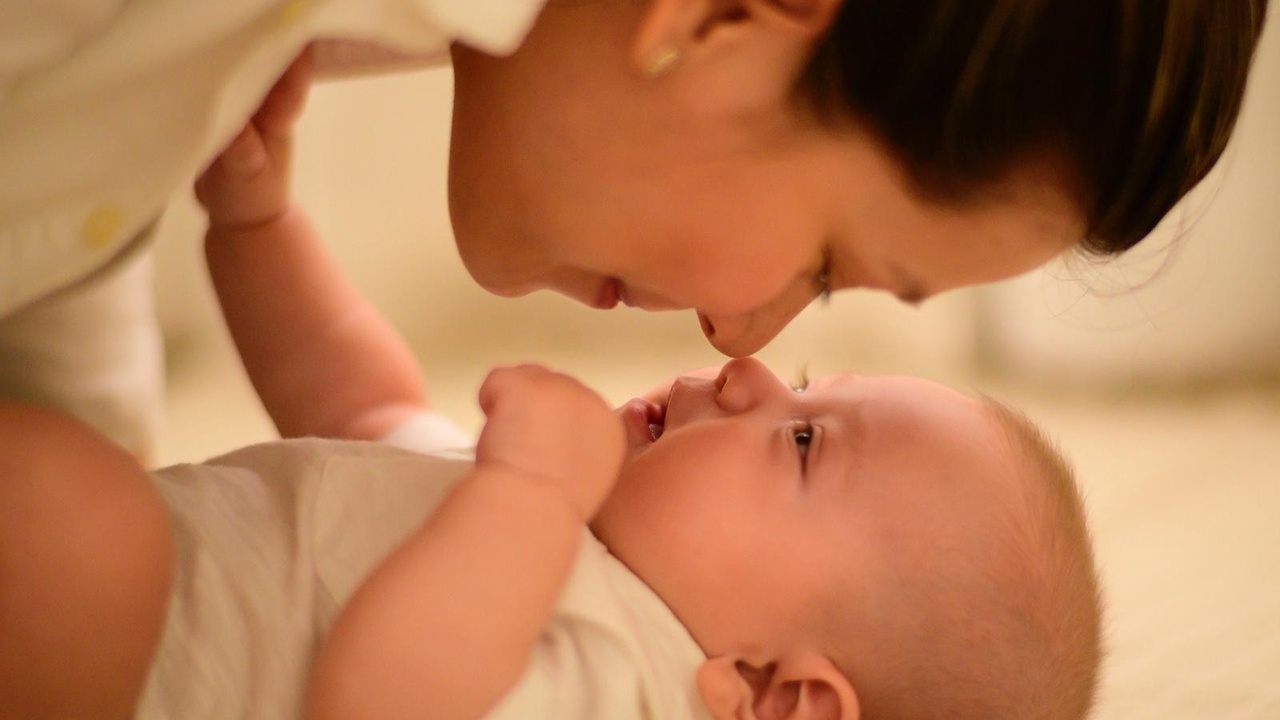Empathy - the greatest tool in your parenting toolkit.

Empathy is the ability to imagine what someone else might be thinking of feeling or more simply, the ability to put yourself in someone else's shoes. Cognitive empathy in particular refers to our ability to identify and understand other people’s emotions. If you have a basic understanding of your newborn’s world view you can tailor your parenting to provide the love, care and support specific to your baby.
To empathise with newborns, we have to put ourselves in their place, to imagine experiencing their world - but which world? The world where they have spent most of their life in, their womb world or the world they are in now- our world.
It is well accepted that babies experience a " fourth trimester" - the first 12 weeks of a baby's life, a time of great physical and emotional change as your baby adjusts to being outside the womb, and you adjust to your new life as a parent. In evolutionary terms our babies are born three months early. An adaptation to allow our big brained babies to pass through a very narrow pelvis. Most other mammals can run within an hour of birth but our little babies are born defenceless and incredibly vulnerable. Unable to run away from danger, unable to defend themselves against the threats they will find in their ex-uterine environment. For the first three months of your baby’s life it helps to think of your like a fetus ......outside the womb.
So how do we help our newborns adjust to the world, let's have a look the womb world and our world:
1: Swaddling and Swaying
Imagine how snug your baby was at the very end of your pregnancy inside you- now imagine how strange it must feel to have so much space around them! By swaddling your baby you can help recreate the sense of safety and security your baby felt before they were born
Guidelines for swaddling
- Never swaddle over your baby's head or near his face
- Never swaddle your baby if he is ill or has a fever
- Make sure your baby does not overheat
- Only swaddle your baby until he can roll over
- Always place baby to sleep on his back
- Do not swaddle tightlybaround your baby’s hips and legs
- Start to swaddle as soon as possible
- Use a safe, breathable fabric– i.e. cotton
Wearing your baby in a sling across your chest will feel familiar to them. Make sure you use the sling correctly.
The five ticks for safe baby wearing
- Tight
- In view at all times
- Close enough to kiss
- Keep chin off the chest
- Supported back
This is one of the ultimate ways to keep baby calm and happy. It increases the time spent in quiet alertness - a time of contentment when they learn the most. When a baby is in the uterus they spend 100% of their time in physical contact with us, the moment they are born it drops to 40%. Baby wearing also means 2 free hands.
Movement is also a great way to calm your baby. Gently swaying or rocking from side to side, walking whilst carrying them or taking them out in the pram are all great strategies.
2: Skin to Skin contact
Skin to skin contact is always encouraged after you give birth, but this type of contact should continue long after you have left the birthing room. Being in contact with your warm, naturally (un) scented skin is heaven for a baby, it helps stabilise their body temperature, heart rate and stress hormones and stimulates the release of oxytocin- the love and bonding hormone. Topless cuddles, shared baths, baby massage are all great skin to skin experiences. This is also something your partner can do.
3: Position
The back is the only safe position for sleeping but it's often the worst position for fussiness. You can try holding your baby on her side, on her stomach or over your shoulder when calming them down.
4: Sound
Contrary to myth, babies don't need silence to sleep. In the womb the sound of the blood flow is a shush louder than a vacuum cleaner! The best way to imitate these magic sounds is white noise. Babies also love the sound of your voice!
5: Feeding
Whether you are breast or bottle feeding if your baby is hungry, don't wait for a scheduled time to feed them. Sucking is the icing on the cake of calming. Many fussy babies relax into deep tranquillity when they suck. Many babies calm easier with a pacifier.
6: Bath time
Having a warm bath is often relaxing and comforting experience for your newborn. Floating in water is like being back in the womb. It’s a beautiful time to bond and have eye contact with your baby in the “quiet-alert phase” and is a wonderful settling technique.
What does the Fourth Trimester mean for Mum?
It is a time of great change. When the baby arrives, quite often the focus shifts to them and as a result, parents can overlook their own health and well-being. Newborns take up a lot of time. It's very easy for new Mums to be overwhelmed in the first few weeks by the demands of feeding, sleeping (or lack of), crying and looking after a baby. Combined with the physical recovery after giving birth and the changes to their hormones' no wonder Mums feel exhausted. It is important to have empathy for ourselves too. For more information about this check out our blog about Planning for your postnatal Recovery.


